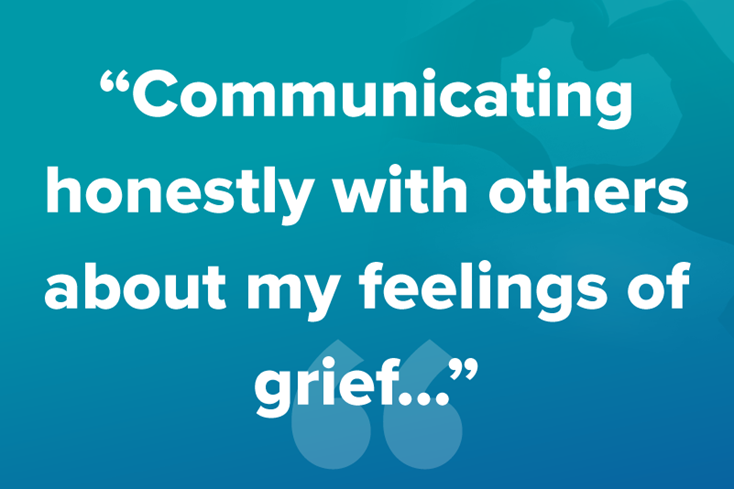September 17, 2020
By Michael Bamarni

As someone who has lost a loved one to suicide, I understand why it’s such a taboo topic. There are layers of anger and guilt over their decision, but also sadness and confusion. Why did they do it? Why wasn’t I enough? What am I going to do without them? Who am I without them? Am I really never going to see them again?
Support is crucial in life because communicating honestly with others is one of the main ways we can begin to heal from emotionally painful experiences. However, the profound level of loss brought on by the suicide of a loved one can often lead to many negative reactions, such as self-isolation and fears of opening up to new people. The dark time, which in my case lasted four years, was extremely self-destructive. I kept my insecurities and resentments to myself and did not want to accept reality. This led me to make regrettable decisions.
Even with the help of a therapist during this time, I was unable to cope with the grief until I reached out to family members. I had known my therapist since I was eight years old due to childhood trauma, but he simply wasn’t someone I could share my deepest fears and insecurities with easily. In my opinion, no matter how much you know and trust your therapist, there is still a separation from genuine closeness due to the transactional aspect of the counseling relationship and the limited and scheduled time for interacting. I am not here to discredit therapy as I have seen great benefits from the process for myself and for others, but it was difficult for me to address my grief from the suicide of a loved one with a therapist.
So, what can we do to help and be helped during traumatic situations of grief? The answer, no matter how simple it may seem, is to connect with others. Allow yourself to be vulnerable with them and have faith they won’t betray your trust. This is much easier said than done, so here are some recommendations I have learned:
- Reach out to family and friends. All it takes is one parent, sibling, cousin, aunt, uncle, grandparent, close friend, etc. to begin a positive change from self-destructive and fear-based decisions to acts of love and kindness.
- Call a helpline or join a support group. These resources are not always just for people contemplating suicide. If you reach out, you will be provided with information about local support groups and helpful tips for coping with the loss of a loved one. You can contact the National Suicide Prevention Lifeline at 1-800-273-8255 or 988lifeline.org.
- Rebuild your faith. I am not trying to push religion — nor am I discrediting it — but reminding you not to let the loss of a loved one to keep you from the beliefs and values that guided your life before it happened. There are many supportive and informative videos online that can be beneficial for those who have lost their faith in love, for example, which I highly recommend.
Communicating honestly with others about my feelings of grief related to suicide has been a critically important part of my healing process. If you find yourself in the aftermath of a similarly devastating loss, I hope you will dig deep and open up to the people around you who care about you. Hopefully it will help you, too.
Submit To The NAMI Blog
We’re always accepting submissions to the NAMI Blog! We feature the latest research, stories of recovery, ways to end stigma and strategies for living well with mental illness. Most importantly: We feature your voices.
LEARN MORE